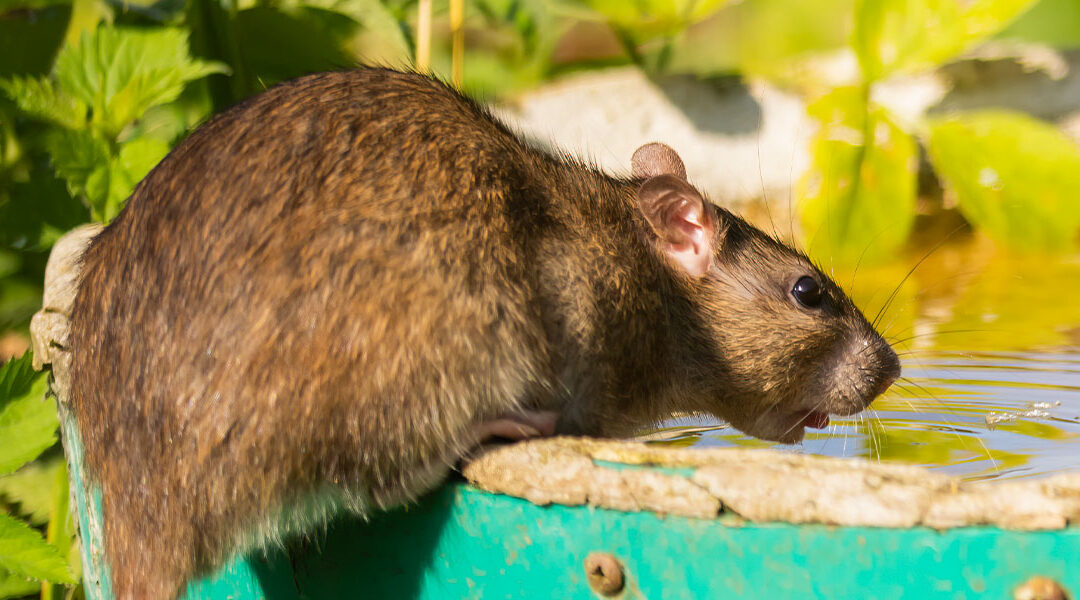The Unsettling Truth You Should Know
We’ve all heard certain critters carry rabies. In the state of Florida, and places like Jacksonville, the most common carriers of rabies, are raccoons and bats. Surprisingly, foxes are also high on the carrier list, but that certainly doesn’t exclude other species. For instance, skunks and bobcats have also been known to spread rabies. So, where does that leave rats?
Rats sometimes carry rabies, although it’s rarer than most people think. Feral cats and other wild animals are more frequent carriers of the disease. However, this doesn’t mean rants aren’t susceptible or immune, because these common rodents are known to carry rabies.
Do Rats Spread Rabies?
Rats are rarely known to spread rabies. While they can be infected, it’s extremely uncommon for them to transmit the virus. Rabies is typically associated with other mammals, such as raccoons, bats, skunks, and foxes, which are more likely to bite humans or other animals in ways that transmit the disease.
This rarity is partly because smaller rodents like rats often die quickly after encountering a rabid animal, leaving little opportunity for them to pass on the virus. However, if you are bitten by any animal, including a rat, it’s always best to clean the wound thoroughly and consult a medical professional to rule out risks or infections.
What Are Rabies, Anyway?
Rabies is an extremely serious and fatal viral infection usually caused by lyssavirus that affects the central nervous system. It attacks the spinal cord and the brain, causing encephalitis, or inflammation of the brain. The disease typically spreads through the saliva of an infected animal, including rats. Once symptoms appear, death almost inevitably follows, making it a very serious concern. (This is why domestic pets are vaccinated against the disease.)
The Most Common Diseases Rats Carry and Their Health Hazards to Households
Rats are notorious pests that invade homes and businesses, posing serious health risks to humans. These rodents can carry and transmit a variety of diseases, some of which have severe consequences for human health. Understanding the diseases associated with rats and the potential dangers they pose can help households take proactive measures to prevent infestations and protect their families.
Common Diseases Carried by Rats
Rats can harbor numerous pathogens that can be transmitted through direct contact, their droppings, urine, saliva, or even through bites. Some of the most common diseases they carry include:
Leptospirosis
Leptospirosis is a bacterial infection caused by the Leptospira bacteria. It is commonly spread through rat urine, which can contaminate water, soil, and food sources. Humans who come into contact with infected water or surfaces may develop flu-like symptoms, jaundice, kidney damage, or even meningitis in severe cases.
Hantavirus
Hantavirus is a potentially deadly disease transmitted through the inhalation of airborne particles contaminated with rat droppings, urine, or saliva. Early symptoms include fever, muscle aches, and fatigue, but the disease can progress to severe respiratory distress and organ failure.
Salmonellosis
Rats are known carriers of Salmonella bacteria, which can contaminate food and water sources. Humans who consume contaminated food may suffer from severe gastrointestinal symptoms such as diarrhea, vomiting, fever, and abdominal cramps.
Rat-Bite Fever (RBF)
Rat-bite fever is a bacterial infection that can be transmitted through bites, scratches, or contact with rat saliva. It is caused by Streptobacillus moniliformis or Spirillum minus. Symptoms include fever, muscle pain, joint pain, rash, and, if untreated, complications affecting the heart and brain.
Plague
Although rare today, rats have historically been linked to the spread of the plague, caused by Yersinia pestis bacteria. The disease is transmitted through fleas that infect rats and can cause serious illness in humans, including swollen lymph nodes, fever, chills, and, in severe cases, septicemia or pneumonia.
Health Hazards Posed by Rats to Households
Beyond the direct transmission of diseases, rats pose additional risks to households, such as the following:
Contamination of Food and Water
Rats often seek food and water sources in homes, contaminating them with their droppings, urine, and fur. This contamination increases the risk of foodborne illnesses and bacterial infections.
Structural Damage
Rats are known for their strong teeth, which they use to gnaw on various materials, including wood, plastic, electrical wiring, and insulation. This behavior can cause structural damage to homes and increase the risk of electrical fires due to exposed wires.
Allergies and Respiratory Issues
Rat droppings, urine, and dander can trigger allergic reactions and exacerbate respiratory conditions such as asthma, particularly in children and individuals with preexisting conditions.
Rapid Infestation Growth
Rats reproduce quickly, and a small infestation can rapidly grow into a major problem. The more rats present in a household, the higher the risk of disease transmission and property damage.
Preventing Rat Infestations
To protect your home and family from the health hazards associated with rats, consider the following preventive measures:
- Seal entry points. Close off any gaps, cracks, or openings in walls, doors, and windows to prevent rat entry.
- Maintain cleanliness. Store food in sealed containers, clean up spills promptly, and dispose of garbage properly to eliminate food sources.
- Remove clutter. Reduce hiding spots by keeping storage areas organized and free of excessive clutter.
- Eliminate water sources. Fix leaky pipes and remove standing water to discourage rat infestations.
- Use rodent control methods. Traps, bait stations, and professional pest control services can help manage and eliminate rat problems effectively.
Wrapping It All Up
Rats are more than just a nuisance; they pose serious health risks to humans through the diseases they carry and the hazards they create in homes. Understanding the dangers they present and implementing effective prevention strategies can help households stay safe and rat-free. If you suspect a rat infestation, taking immediate action is crucial to minimizing health risks and preventing further damage.
Don’t let rats invade your peace of mind or your property. Trad’s Pest Control has the expertise and solutions to eliminate rats safely and effectively—protecting your family, home, and health.
Call us today for a free inspection, or to schedule your service now. Together, we’ll create a rodent-free zone you can trust!
Act fast! The sooner you call, the quicker we can stop the damage and restore your comfort. Let’s solve your rat problem, starting today!

